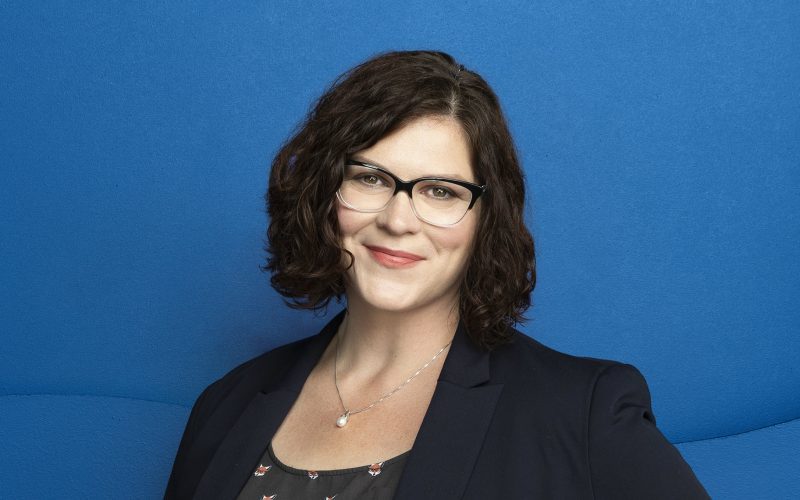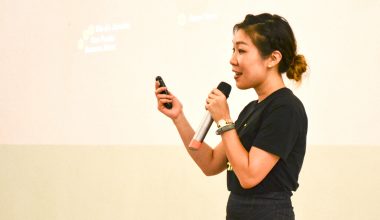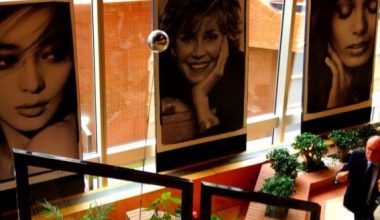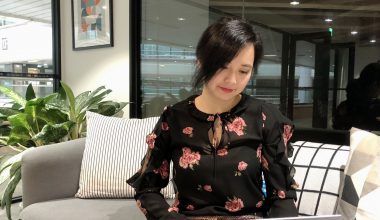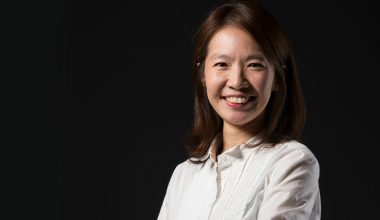【CAREhER ✕ Women Who Code Taipei】系列專訪 Ep.10
Tai: Hello and welcome to the final episode of this season of 20-20 Women Lead Podcast. I’m your host for this episode, Tai Tsao and my co-host is Angel Chien, the Director of Women Who Code Taipei.
Angel: Hi, everyone!
Tai: If you’re a regular listener, you might know that this show is brought to you by a group of dedicated volunteers at Women Who Code Taipei. If you’re new to this show, I highly recommend you listen to all 10 episodes of this show. We interviewed women entrepreneurs, engineers, and experts in the technology field.
Today is a very special episode, we’re thrilled to have Joey Rosenberg, the interim CEO of Women Who Code, on the show. Joey, Angel and I talked about how Women Who Code designs its leadership program, the “pipeline breakpoint” in women’s tech career and what role men can play in supporting women. Joey also shares advice for senior professionals in the Tech field and some exciting news for 2020.
So let’s get to it.
歡迎收聽 20-20 Women Lead Podcast,為了迎接 2020 年,每月 20 號 20 分鐘,讓我們一起認識一位科技女性的故事,學習他們如何創新、挑戰現況、勇於開創屬於自己的路。
編按:以下為英文逐字稿,你也可以看我們的Medium頁面看中文摘要。
Tai: Hi, Joey, thank you so much for coming to the show today. We’re so excited to have you here.
Joey: Thank you. It’s a pleasure to be here and thank you for having me.
Tai: Awesome. I know you and Angel have met each other several times in person. And you might have exchanged some great stories about each other’s journeys with Women Who Code. I know that you being in the role of Chief Leadership Officer and now the interim CEO Women Who Code. Would you share a bit more about what brought you to the organization and your journey here?
Joey: Sure. Absolutely. I think that the technology industry is one of the most amazing in the world today. It’s genuinely changing how we interact with each other, with our careers, with our jobs, and with the world. And so Tech has always been something that I’ve been incredibly interested in, and I’ve often worked in tech adjacent roles. So, for example, as I’m a global marketing manager, I did a lot of data science work. I was in an accounting role just at the beginning when the legislation went into place to allow for electronic transactions for businesses. And I helped move my organization through that electronic digitization transformation and I’ve conducted on proprietary software builds. So I’ve been tech adjacent for a long time. I’ve also been in the nonprofit and giving back sector for my entire life.
I volunteered alongside my professional career from the time I was very, very young and always have seen the power of creating a global community that’s based not just on profit, but on the desire to connect and give back. And so that’s something that’s always been really important to me. And when Women Who Code started to formalize, I kind of had a backseat view because I knew Alaina Percival, the CEO who is one of our founding CEO and our normally acting CEO.
We completed the same MBA program. And she started working with these incredible software engineers in San Francisco and they started dreaming of this organization, Women Who Code. And every time I would meet with Alaina in Atlanta, she would tell me about the work that was happening. And it was just really exciting. And when she started building out the team, I immediately said, this is a place that I want to be a part of. This is a movement. This is something that’s building. And it’s exciting. And I’d love to be a part of it and bring my global business background along with my passion for nonprofit to the table. And so fast forward, here we are about five years later, and it’s been an absolute honor to be part of this community.
Tai: That’s wonderful. It sounds like it marries the best of your experience and your passion in both fields. And then this is a perfect match to join this movement. I’m curious, what’s your most rewarding experience in the five-year journey you have with Women Who Code?
Joey: I think the most rewarding is when I meet people whose careers and lives have been impacted by the movement. We have every year in San Francisco, our global premier developer conference, and that has started moving around the world. It came to Asia this year, which was really exciting. But every time I’m at our big conference and we have literally people from around the world, I get to interact with our leaders. And I hear these incredible stories of women and people whose lives have been changed. They’ve gotten new job offers. They’ve doubled their salaries. They’ve found a community of people who look like them, who think like them, and also who are different than them and can challenge their perspective. But together, they’ve really grown. And there’s probably nothing more rewarding than hearing those stories of empowerment and stories of success and really stories of resilience.
Tai: I heard a lot of stories from Angel and from other people about what they can do with this strong network and the empowerment you mentioned. And I feel that Women Who Code really puts a lot of energy and focus in the leadership development component. It’s a really strong differentiator from other communities. Would you share more about the leadership programs at Women Who Code?
Joey: Sure. When women who code was first conceived, one of the key observations was that women often have access to technical training. You know, we have these great engineers who have deep technical knowledge either through traditional avenues like computer science degrees or because they are self-taught. And they’ve really committed a lot of hours to build out their technical expertise, but they didn’t often have access to leadership development opportunities. The ironic thing is to get tapped or accepted into a leadership role, people often require leadership experience.
And so we imagined, well, “what if we create leadership opportunities in communities around the world and give people access genuinely from the communities?” We’re not talking about imagining a leader coming from somewhere else. We’re actually saying, look around, all of you can be leaders if you want to. The leadership program was originally designed in a community-driven, highly experiential way so that people could step up as leaders in their community.
What we saw happened is that very quickly and very frequently after someone has stepped up as a leader for Women Who Code, they’re not just seen as a leader for our organization. They’re actually seen as a leader in the industry and amongst their peers. They’re seen leading events in their community. They’re seen as developing others and valuing the development and leadership of others. And so suddenly their jobs were starting to take notice. They started finding value in putting it on their resume. Companies started valuing when they saw that leadership experience internal to their team and started quickly recognizing that that was a really strong avenue to develop those leadership skills.
This year we took that a step further and we introduced our leadership mindsets. So I spent a lot of time connecting with engineers around the world to really kind of pull up and say, OK, what is it, leader and tech need? So not just women, but but any leader in tech. What would a strong leader look like? How would they act? How would they behave? How would they lead their team? And we were able to identify eight mindsets that really would create the ideal tech leader.
And then we started building programming around each of those mindsets and started imagining what the industry would look like if all leaders across tech really embodied these mindsets and actioned them in their day to day working environment in every company. Just to give you kind of a snapshot, those eight mindsets are responsible, innovative, team, learning, reflective, strategic, presence and inclusive. And where we see leaders picking up these mindsets and activating them with the teams, we see really strong results. So that’s been very exciting to be able to kind of take the learnings from our community and pull up and build a model that we can then give more and more people access to.
Angel: For myself, I’m actually benefited from the leadership programs because before I become the leader in my own career, my manager actually didn’t know how to teach me about leadership. The program has really helped me to really understand leadership and apply some of the skills I learned from the Women Who Code leadership program (back to my job). Since both of us were at the international conference back in San Francisco and the Asia conference, how do you see the difference in all the leadership programs between the two different areas?
Joey: I think leadership is really all about context. You can be a leader in one place. And the kind of what that team or culture might need could be something very different and in a different place. Being able to adapt and understand what the group in front of you actually needs is an important concept of leadership. I think what we see when we’re in San Francisco, the tech industry has really become the culture of the city. Tech and San Francisco have become kind of synonymous with each other. It’s very normal to have a pathway or a career in tech or in a tech company. And what I find is as soon as you get outside of San Francisco or Silicon Valley area, things change very rapidly.
And depending on how far away from that you are, those cultural nuances play an even bigger impact on what the tech industry looks like. What we’ve seen in Asia is a different kind of tech hub emerging. The key trends that I’m seeing there are we have a large number of young, very hungry, ready to innovate, ready to design, ready to build the next greatest thing in a way that is that I haven’t experienced in other parts of the world as much. There’s just some kind of buzz and energy happening across Asia. I was reading a little bit about Taipei and Manila and Kuala Lumpur and some of the different cities where we are based. And some of those tech trends are things like really taking on blockchain where some parts of the world seem to be more afraid of that, really taking on AI, VR and AR in ways that are just really different. There’s something you just feel when you’re in Asia. It makes me want to get more innovative.
Angel: That’s great feedback. What is your observation for the Asia area, when it comes to the topic of how to keep more women in the tech fields and how to encourage them?
Joey: When I spent time in Asia, one thing that really stood out to me is around the pipeline breakpoint. So we talk about this a lot at Women Who Code and the pipeline breakpoint is the moment when people start leaving the industry. In the US, it’s around the 10-year mark.
For some cultures, it seemed to be a certain age, like the early thirties. That kind of 8, 10, 12-year mark seemed to be consistent across cultures. And every time I ask people why, why they saw a lot of women leaving. In every country of every culture I’ve ever visited, the loudest answer was always the same. And that was because they don’t see themselves represented in top leadership. They don’t see a pathway for themselves. And they don’t have access to leadership development opportunities to help them stand out to their company.
And the flip side of that is where people are successful and they actually stay is that they find a mentor and an advocate for them in their career or in their company. They stay relevant, so they keep chasing and learning new tech skills as they emerge. They’re not afraid to say, “I don’t know how to do something, but I’m willing to learn.” So every time the new tech is emerging there, they’re really chasing it and learning it. They also are going deep in a certain area. One thing about tech is that it’s huge and no one person is going to be an expert at everything. So the people that go deep and really build a strong technical knowledge are really able to rise in those areas.
Finally, find a network, find leadership opportunities either through Women Who Code or through some avenue where you can really demonstrate your ability to lead a team, to lead a project, to help develop others and build that network of people. Because when you need to lean on them the most, they will be there for you and for the people doing that, we see them staying through that career pipeline break.
Angel: Since you’re talking about the leaders in the IT fields that most females didn’t see a career path. Any kind of suggestions for those senior professionals or people who already are leaders or managers but they still didn’t see the higher position in the IT field?
Joey: I would say look beyond your immediate company. One thing that we found when we first built Women Who Code when it was first emerging in San Francisco, it was really because people were sitting in companies where they couldn’t see that pathway for themselves but they were dreaming and hoping that it was out there. And they started connecting across companies. And the more you can start to connect across companies and attend conferences who feature women keynotes, who feature women speakers. The more you can start to look beyond your immediate experience and look at the broader industry, you will find those women leaders, you will find those women speakers, you will find women mentors, and you’ll find not just women, but people of all genders who genuinely believe that tech is better with women in it and when all people have a seat at the table. They will advocate for you and be your champion, you just might have to look beyond your immediate team or your immediate company and start to find that.
And then for the women who have already had that success, if you’ve made it start thinking about what can you do to help? Just one other person or can you go out and give a talk? Can you go out and be that new face of leadership so that someone else that’s maybe two steps behind you can see her pathway. And if we all start doing that, then suddenly we put a new face to leadership and a new face to the tech industry, because we know there are women at every level. It’s really about amplifying those stories so that people can see it.
Tai: I can totally feel your excitement by just listening to the stories you tell, you share and what Angel shares. I can feel a sense of commitment in changing that issue and creating more opportunities for women to shine in the field and to set a good role model for other people.
For this kind of global scale movement, within five years, Women Who Code has become like one of the largest, most active communities dedicated to inspiring women to excel in their careers and their tech careers. So how do you create that culture or that consistency among more than 60 chapters across the world?
Joey: Well, it’s a really big job. It’s not always an easy one, but if you give people a platform and you trust them, then the end result will be so much better than you could have ever imagined. One of the key pieces is to make sure that we have the right people in leadership, in the right roles. One thing we’ve learned is that cities can really thrive when they have an engineer with two years of experience or more stepping into leadership. And we really hold true to it being community-led from technical professionals.
We also look for tech hubs as key growth points. So a city like Taipei that has a really strong technical infrastructure so that we know there’s a community there that can support these networks. And then you start out with a little bit of basic training. So we ask everybody to agree on some basic core principles like our code of conduct. They go through onboarding to understand who we are and who we aren’t. We trust our leaders and inherently to go out and develop a really strong program that resonates with engineers in their city.
And we also know that we can’t possibly know everything and we can’t possibly know what every community needs. But if we activate a strong pool of leaders across the world, they can collectively get to know these communities really deeply and really show up and represent their voices.
When Jane stepped up in Taipei, it was really clear that she was going to be a strong leader and build something really special. And it’s been really inspiring to watch her build this community and bring on additional leaders, bringing on people like Angel to make sure that we have a strong network of leaders who are really representing that local community and also bringing the best of Women Who Code there. So one thing we have to keep doing is keep communicating our mission and vision. We have to keep bringing our leaders together to have common experiences so that when they go back to their home communities, they can take the best of Women Who Code back to their community. And we have to listen.
One thing that I’ve learned in my role, especially as interim CEO. this has been amplified for me, is that you can imagine inclusion and you can really want it. But you have to really every day reaffirm and put into place inclusion by design. And it has to be at your core all the time, and you can never lose sight of it. And so one of the things that Women Who Code was was built on was this notion that everyone can step up and be a leader.
I think one of the things that we need to do for our future as we continue to grow is to check across all of our communities to make sure that that core value is still true and living and that people feel like they have access to the leadership pipeline and they feel like they’re represented in our leaders. And so that that can be echoed in the tech industry.
Angel: That brings us to another thing, what is your most exciting to as we step into 2020? What’s on your mind? What’s your imagination for Women Who Code?
Joey: I’m excited to see more people engaging beyond their city, but then bringing that knowledge back. And so I expect for 2020 that we’ll see more tools for network leaders and more opportunities to engage in those virtual communities, connecting with engineers who are doing similar kinds of projects around the world and so similar types of tech.
I also think that an exciting piece is going to be around celebrating the rich diversity within our community. So we talk, of course, we’re Women Who Code so women’s right in our brand and you can easily imagine gender diversity as the kind of top of what we do. But women are half of the population. And across our communities, there is this really rich diversity across culture, across race, across sexual orientation, across all kinds of different groups. And really being able to amplify that, to make sure that not just all women, but every woman can see herself represented in that story.
Tai: I know we’re reaching the end of the interview, one thing I’m curious, what’s the role of men in this movement? How do we include them in the process of developing more women in the tech field?
Joey: Men have an incredibly important role to play in gender diversity in the tech industry. They are often in decision-making positions and being really mindful of identifying and removing bias in the hiring process, in the promoting process and in the project allocation process are all really good roles that men can play. And at every step, there’s a place there for an advocate or an ally or a champion of women to speak up. Just to give you an example. When we look at a lot of the project work, people will say, “oh, yeah, everybody on the team has three projects.”
But quite often women are given projects that are less desirable or even considered failing because women are often nurturers. And so there’s this perception that if I give a failing project to a woman, she’ll fix it. This happens a lot in teams and it’s not necessarily intentional. This is unconscious bias, right? But if you step back and you say, “OK, these are the five best projects, let’s make sure that this gets allocated across genders,” so women aren’t just getting failing or less desirable projects. They’re getting really strong projects that create a pathway to visibility for their work.
When you’re hiring, people try to really work, work really hard to make sure that the job descriptions that you have for your team members are free of things that hold women back. Women will only apply to a job if they meet 80 percent or more of the qualifications. So if you have a really long list of qualifications that are actually not critical to the job, just drop them and actually get down to what’s the most important thing. So women can opt-in instead of opting out.
So there are lots of opportunities for men in their day to day business practice that as leaders in the tech organization, they can improve the practices. And when you have an opportunity, mentor a woman, champion a woman, find someone to sponsor.
There was a woman who’s a former board member for Women Who Code and she described what she needed from men in a really funny way. She said, “mentor me, helped me create a pathway for myself. And when I fall down, don’t pick me up. I don’t need you to pick me up. I need you to lie down on the floor with me and laugh together because I will pick myself up. But I might need your help to see that pathway and to help open some doors for me.” And so it’s not about helping someone up, it’s about really, truly seeing them as a peer and someone that you can mentor and create a pathway for.
Tai: Thank you so much. It’s a really powerful message. I hope all the listeners out there if you’re a hiring manager or you’re working in any field, take notes and make sure that you’re creating that kind of environment for both genders or people with different diverse backgrounds can thrive in your organization. So thank you so much, Joey, for sharing your wisdom and all the learnings and exciting things the whole community and the movement is going.
We’re so glad you’re here with us on our final episode of this season of 20-20 Women Lead podcast. This is one of the exciting projects we’ve done for the past 10 months. And it’s also a good representation: we can try to do something from scratch and learn from stepping up and doing things that we’re not naturally good at and then try to develop ourselves as leaders in this community.
Joey: Thank you so much for having me. It’s always a pleasure to connect with our communities and I would love to share that I wake up every day and I’m inspired by what’s happening out in the world. It’s not what’s happening on my desk. It’s actually the work that you are all doing out there to bring that community together. And that’s what keeps me going every day. And so thank you so much for giving me some time to spend with you today and for having me on the podcast.
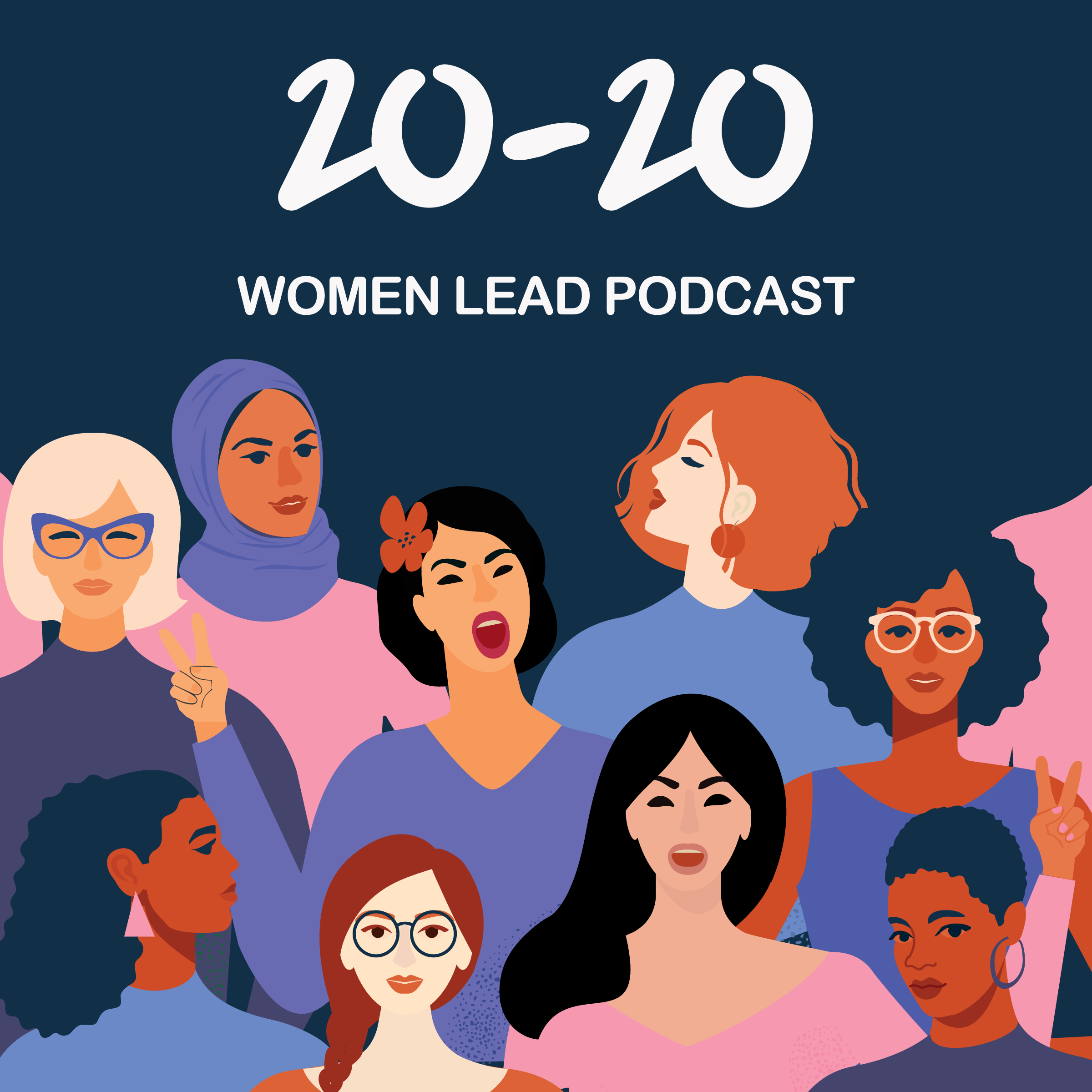

20-20 Women Lead Podcast 希望能鼓舞科技女性勇於突破,逐漸消彌「科技業」兩性主管的比率差異。 透過訪談,帶聽眾了解,正在/已經踏出與眾不同一步的科技女性所作的事與心路歷程。
在 2020 年前我們將訪問 10 位女性、製作成 10 集、20 分鐘的節目、在每月的 20 號發佈。希望能啟發科技女性,率先採用新的技術、設計嶄新的產品/服務、或創造新的模式。鼓勵女性勇敢踏出「與眾不同」的一步、接受挑戰。
Club Event
除了透過 Dialogues 觀點、 Podcast 語音專訪,接軌全球的商業消息、身心健康與風格生活相關主題之外,CAREhER 每個月舉辦 Club Event ,提供給身為新世代商業女性的妳,一個思維相近的共學社群,找到屬於自己的支持圈 ( support net )、拓展資源,並享受會員的獨家禮遇。
